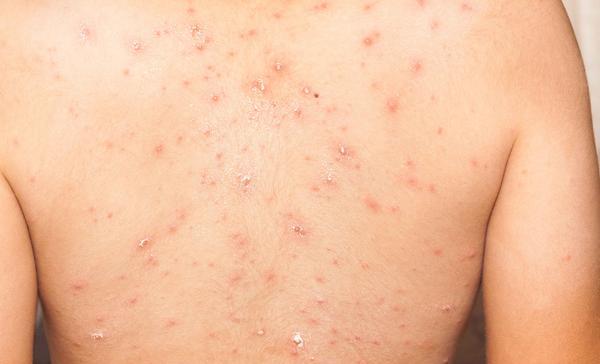Urticaria is a particularly common skin disease in which, once diseased, some edematous clumps appear on the skin, accompanied by a very pronounced itching sensation.
Many patients have hives symptoms that are not obvious during the day, but after entering the night, there will be aggravation of symptoms, which seriously affects the patient's sleep.
So there are many patients who want to know what the causes of hives attack at night.

What are the causes of urticaria night attacks?
1. Exposure to too many allergens
One of the main causes of urticaria night attacks is associated with exposure to too many allergens. For example, in the bedroom, there will be some pollen, dust mites, and some odor irritation.
In addition, it is very likely that there will be some bacteria or mites in bedding, which are allergens.
Once exposed, it will cause a more obvious allergic reaction, which will lead to aggravation of urticaria symptoms.
Second, the sensitivity increases
During the day, many people will do a series of work, or constantly do some other things, and their attention will be distracted, and some of the uncomfortable symptoms caused by hives will be ignored.
When entering the night, the interference factors of the external environment will be very small, and some subtle changes in the body can be very sensitive to know.
Some of the itching symptoms caused by urticaria will be magnified, resulting in aggravation of urticaria symptoms when sleeping at night.
Third, the temperature changes greatly
One of the triggers that cause recurrent hives is related to changes in temperature.
If the temperature is from cold to hot, or from hot to cold, it will cause the skin part to be stimulated to a certain extent, and it is easy to recur the disease.
At night, the temperature is relatively lower than during the day, so that the patient has a recurrence or aggravation of the disease.
Fourth, the secretion of hormones in the body is abnormal
During the day, the amount of hormone secretion in the human body is very large, which can inhibit the release of some allergy mediators, and the symptoms of urticaria will be appropriately alleviated.
After entering the night, the hormone level in the human body will be reduced, unable to suppress the release of some allergy mediators, resulting in some symptoms brought about by urticaria aggravation.
Fifth, the affected area is excessively rubbed
Many patients have hives at night because of hives, which is related to excessive friction of the affected area. Many people will take a bath before going to bed, and when they take a bath, they will use some toiletries.
Once these toiletries irritate the affected area, it can cause symptoms to worsen. Moreover, when taking a bath, the affected area will be repeatedly rubbed, which will cause the itching of the skin to increase.
If the water temperature is too high, or if the affected area is scratched many times, it will also cause the symptoms to worsen.
Sixth, vagus nerve excitement is strengthened
Especially for some special types of urticaria patients, at night, due to the vagus nerve excitability in the body will be strengthened, it will lead to some discomfort symptoms aggravated.
For example, there may be chest stuffiness, poor breathing, or laryngeal edema.
All in all, the causes of exacerbation of urticaria symptoms at night are related to the above 6 factors. Therefore, for urticaria patients, once they are sick, they must receive formal treatment.
And do a good job of daily nursing work, do not contact any allergens, but also eat some foods that are prone to allergies. When severe itching of the skin occurs, do not scratch with your hands, and use cold compresses appropriately to relieve the itching.
For patients who have laryngeal edema at night, or who have difficulty breathing or have difficulty breathing, they must be admitted to the hospital quickly to maximize their health.